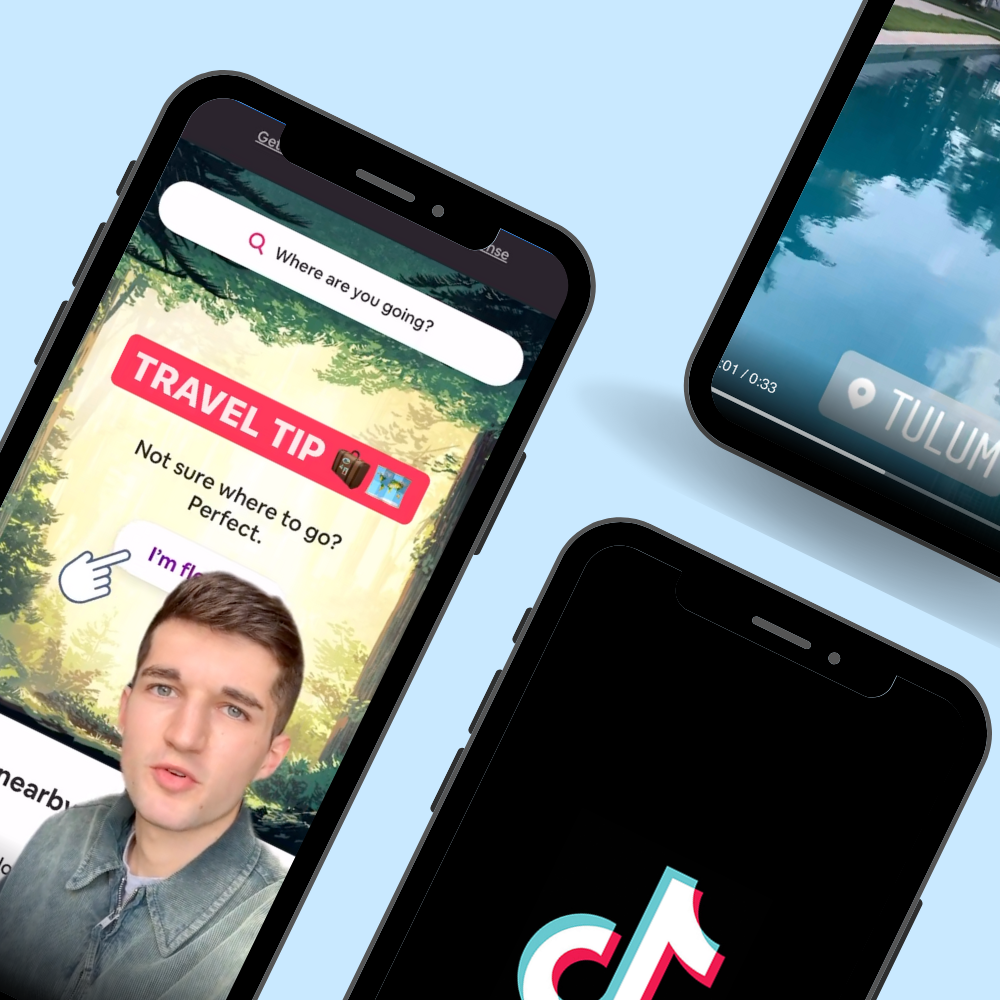There was a time not too long ago when marketers were weighing TikTok’s threat to Instagram Reels. Now, TikTok is threatening Google’s Search and Maps features as it was revealed that 40% of Gen Z users use TikTok Search over Google Search. It’s more than just the rise of short-form video and Gen Z’s preference for lo-fi content. TikTok’s in-tune algorithm and massive platform growth are changing user behavior and content consumption as we know it.
This trend shows Gen Z’s desire to see a visual representation of what they are searching for, and TikTok’s AI is delivering just that. Users search for answers on TikTok similar to how users search on YouTube for answers, except TikTok’s format delivers faster, more efficient informational videos that are straight to the point.
It’s more than just videos Gen Z is searching for on TikTok—it’s user-generated content in the form of reviews, tips and advice on endless topics from everyday consumers and relatable content creators. Users are resonating and craving authentic user-generated content—so much so that 79% of people admit UGC highly impacts their purchasing decisions. With TikTok now on the path to becoming a bigger search engine than Google among Gen Z users, brands have yet another huge reason to leverage TikTok as a key marketing channel.
What does this mean for your brand?
TikTok is rolling out search ads in beta. TikTok Search ads will provide marketers with another opportunity to get in front of their target audience with high purchase intent, this time based on intent through search queries instead of user behavior data like most social channel ads.
Overall, the introduction of TikTok SEO is a very appealing opportunity for marketers for a number of reasons. One, TikTok Search is far less saturated than Google’s. Two, TikTok’s competition to rank is still low, which may offer early-to-start marketers a welcome change in pace from Google’s competitive, hard-to-grow content marketing long game. Most importantly, brands interested in pursuing an SEO strategy on TikTok will need to evaluate the staying power of a No. 1 ranked video. Knowing the “value” a ranked video on TikTok holds could make many brands reevaluate their content marketing strategy to stay relevant.
- SEO content builds a strong brand presence by generating targeted traffic and leads within a niche. This is a huge opportunity for brands on TikTok to get product exposure under the right keywords.
- Hyper-visual industries like travel and beauty will likely be affected by keyword competition more than others. Younger users are searching for fashion inspiration, travel recommendations, recipes and DIY content specifically.
- TikTok’s 2022 revenue from ads was $11.04 billion, a staggering 200% yearly increase. While it’s still not close to Google’s market cap of $1.1 trillion, TikTok was briefly the most visited website in 2021—surpassing Google and quickly gaining market share.
TikTok is doing a lot more for businesses than putting personality to a brand. From organic, paid ads and now SEO, marketers are seeing TikTok drive sales with creator and influencer content.
Keyword targeting is not yet available to advertisers on TikTok, but when available, I bet brands will continue to rely heavily on influencer and creator content to supplement a TikTok SEO strategy.
What does this mean for the creator economy?
If TikTok Search mirrors or surpasses what we know familiar to Google Search, the sky is the limit for the businesses, tools, careers and monetization opportunities that could directly come from this large-scale feature.
Currently, the SEO industry is worth over $80 billion, and Google holds over 90% of the search engine market share. With TikTok rising to become a bigger search engine than Google among Gen Z users, the opportunities for creators to monetize and grow will be plentiful.
Companies can be built on it the same way companies are built for Google SEO, and creators can see monetization the same way creators and bloggers see profits from Google SEO. More opportunities for brands, and more opportunities for creators.
Testing and experimenting with how the algorithm ranks content will be key to finding all the best TikTok SEO practices. While it is still very much early days, creators have speculated that placing the intended keyword as text within the video, including the keyword within the caption and hashtags, and saying the keyword aloud in the video with auto-generated captions are all methods to improve a video’s SEO on TikTok.
This change in content consumption will undoubtedly prompt a change in content creation. Creators will need to satisfy these new user demands by creating amazing content and optimizing their content for search. Further, influencers and creators will need to be up to date and knowledgeable of the latest TikTok SEO best practices in order to stand out against the competition and grow the value of their content.
This article was originally published on Forbes as a Forbes Agency Council post.





















